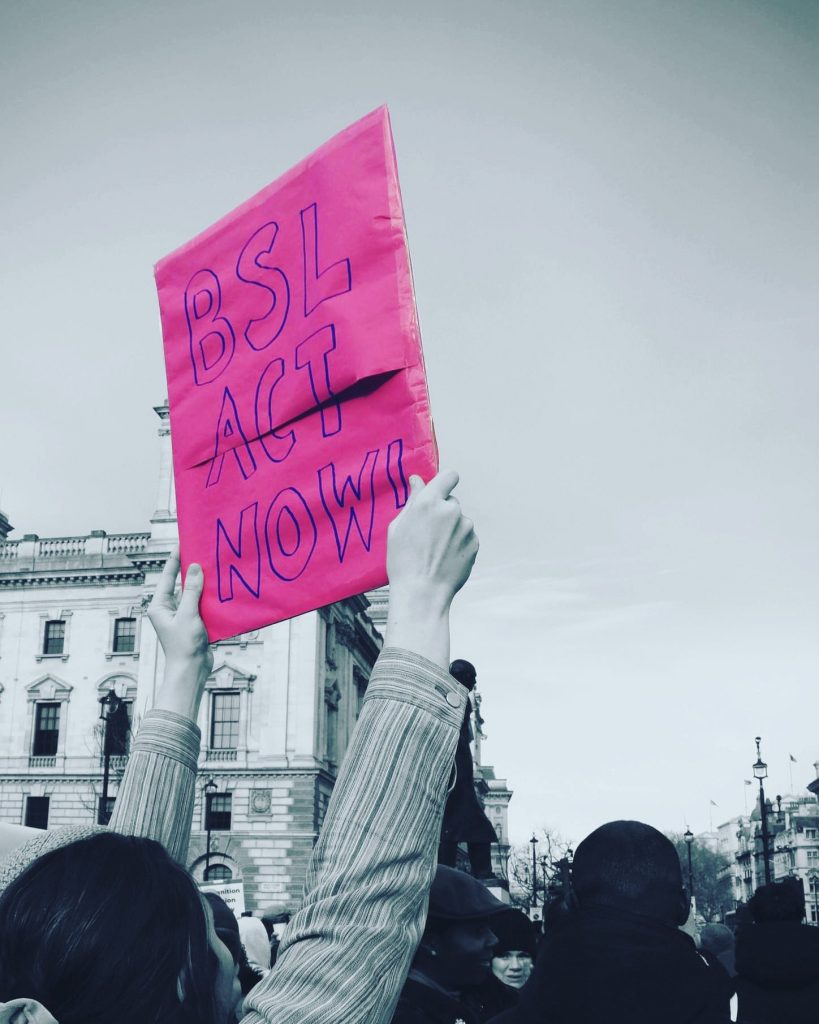The above video is a BSL translation of the below article written by Chris Laing. The translation has been done by Dionne Thomas, Director of Diverse Signs
My interpretation of ‘Act’ will always relate to themes of recognition and progression.
Recognition of the problems many under-represented communities face and the progression that must come from it.
I think of the verb, to act. Because if we never acted upon things, they would only continue to stagnate or worsen.
Primarily, though, I think of Act in a legal sense, meaning that a law has been passed. This is symbolic and gives these communities a firm ground on which to stand up for themselves.
This leads me on to the BSL Act itself. The genesis of the BSL act began in 1997, when the campaign to have British Sign Language recognised as an official language by the government was started.
Many years, campaigning and street protests later, we finally received our wish when the government formally recognised BSL as a language in 2003, making the BSL Act into law.
The Deaf community saw this as winning a battle, but by no means winning the war. Still to this day, we campaign for countless issues that affect us such as:
Greater access to government information (England is one of few countries on earth still not to have an interpreter standing next to the PM/President during government briefings).
Better access to mental health services to counter the abnormally high rates of mental health issues that we have.
Tools to help with language deprivation, which is endemic in our community and stems primarily from hearing families not learning how to communicate with their Deaf children. As affordability of courses is often the issue, government funding for parents and families to attend them would help.
Deaf identity crises which have arisen from the shutting down of Deaf clubs and Deaf schools, thereby forcing Deaf children into mainstream education – which is largely ineffectual – replacing what was once a tight-knit and proud community with an estranged set of individuals.
The problems listed above are but a few of the many plights we face.
The BSL Act that we want, would help us become a healthier and happier community who can break down barriers and turn achieving our dreams into reality.
18th March will be BSL third reading, and we’ll find out whether it’s been passed or not.







